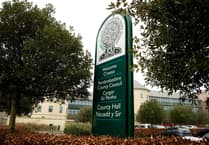It’s been fascinating to see the various responses to the ‘Unite the Kingdom’ rally that attracted upwards of 100,000 people to London a few weeks ago.
There was obviously a very visible ‘Christian’ presence there with crosses and banners declaring ‘Christ is King’ and some church ministers addressing the crowds. But since then, a group of senior Christian leaders have joined together to voice their concerns about this expression of Christianity, and it certainly prompted a vigorous discussion about ‘cultural Christianity’ on Radio 4.
I can readily identify with the concerns of those who think there is a danger of co-opting Christianity and the cross for political ends that run counter to the message of Jesus, although there were undoubtedly genuine believers present in the crowds. Indeed, one commentator noted that some defenders of the march have argued that this very public witness of Christianity took place within ‘a context where many feel pressure to privatise their faith’.
It would seem that those who attended (and I’m not simply talking about Christians) did so for a variety of reasons. These ranged from concerns about freedom of speech to the impact of immigration, and because it afforded some a great opportunity to express what have been described as racist and far-right views.
As I reflect on all of this, I can’t help thinking that it is somewhat incongruous to claim that Britain, or any other country for that matter, is a ‘Christian nation’. We have a wonderful Christian legacy of course; much of our national life has been shaped by Christian values. But the New Testament seems to recognise just one ‘Christian nation’. The apostle Peter pointed to this when he wrote a letter to Christians living in various part of ancient Asia Minor in which he said ‘You are a chosen people…. a holy nation, God’s very own possession’. It’s a very diverse nation too because it consists of people from ‘every nation and tribe and people and language’ according to the Book of Revelation.
Notwithstanding this, the New Testament teaches us that God expects Christians to make a positive contribution to their civic life. They are to pray for those who hold positions of authority and responsibility even when they exercise their power in the way the emperor Nero did, because they are God’s servants and called to do ‘good’. Rulers are supposed to be instruments in the hand of God.
But if that is the case, Christians have a duty to make the case for Biblical values and to tell the authorities what God expects of them too. This will obviously mean defending freedom of speech and freedom of religion because that is exactly what God allows us to enjoy. It has also meant that there have been times when they have felt that they should obey their heavenly King and not any earthly authority, however powerful. History shows that this has proven extremely costly but they believed there was no option given their belief that Jesus is Lord.
Having said this, those who claim to acknowledge the God of infinite sacrificial love will do all they can to promote peace and harmony within their communities. As I ponder the horrific events in Manchester that seems more relevant and more urgent than ever





Comments
This article has no comments yet. Be the first to leave a comment.